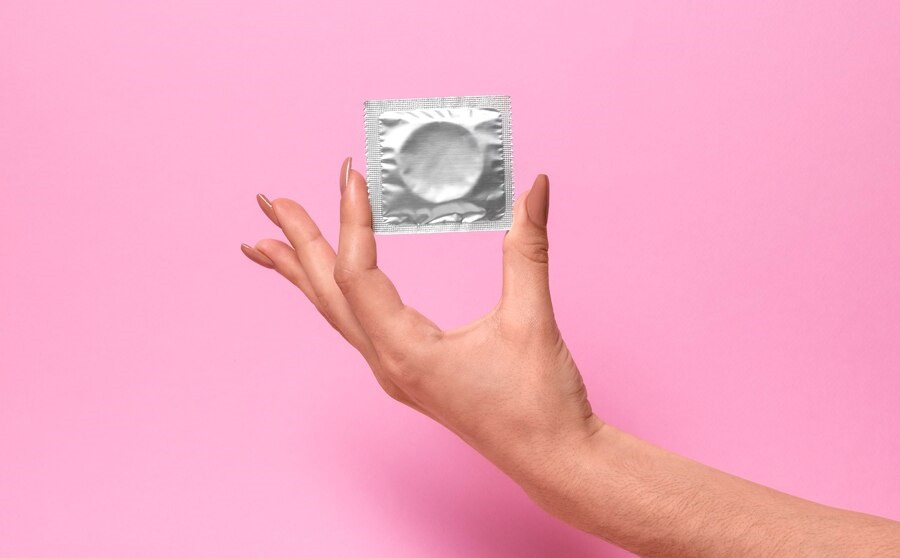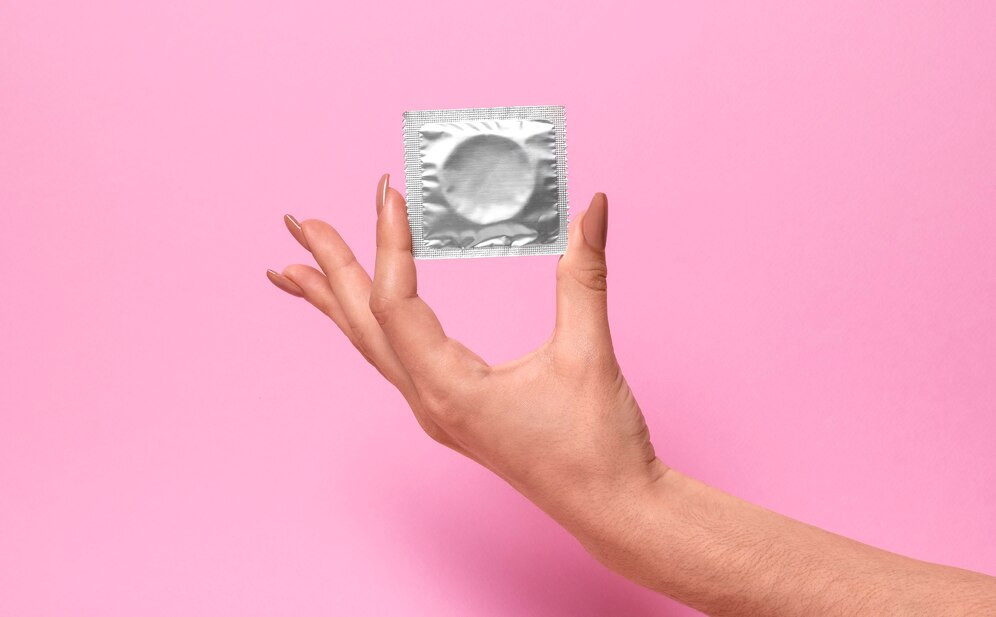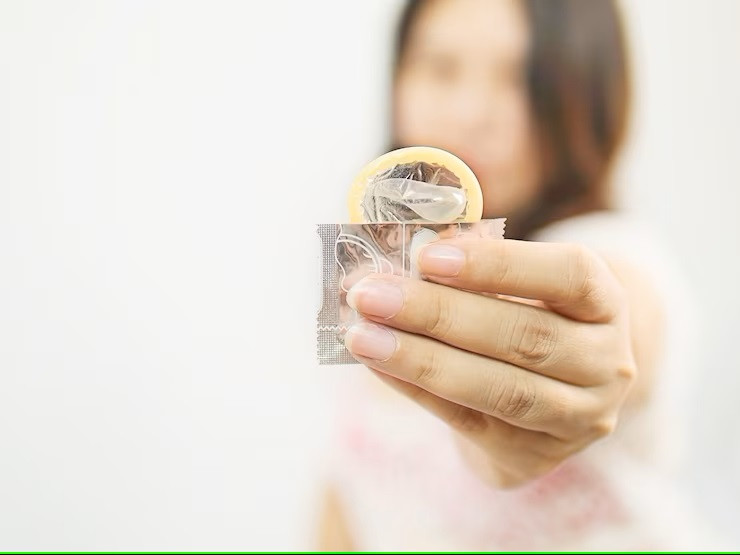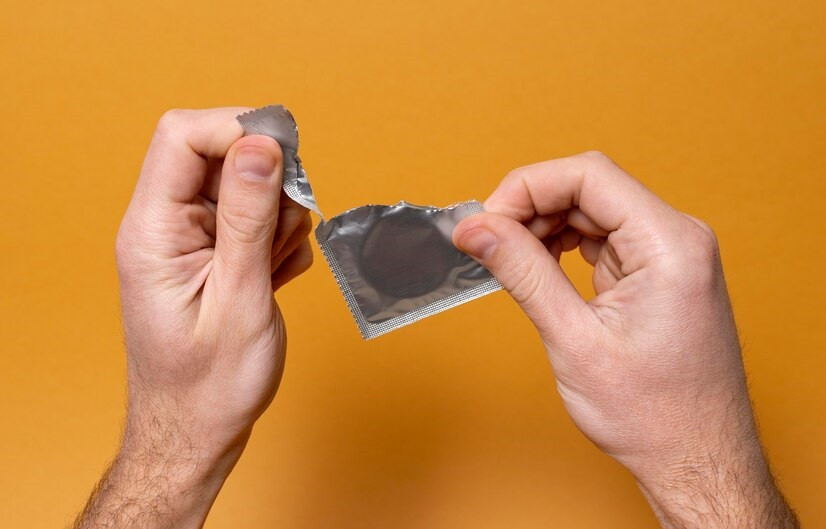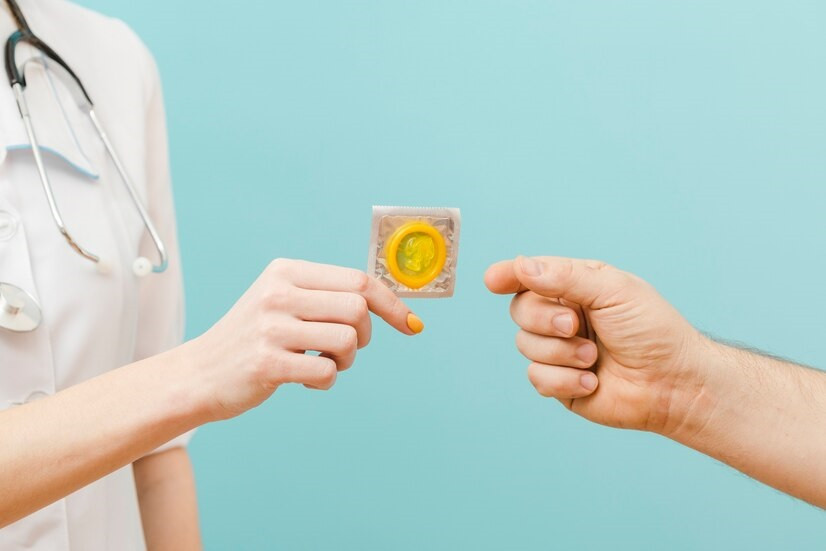Kondom adalah salah satu pilihan alat kontrasepsi yang cukup efektif membantu mencegah kehamilan dan praktis penggunaannya. Biasanya kondom terbuat dari karet ataupun plastik atau dari kulit hewan.
Cara Kerja Kondom
Kondom bekerja sebagai penghalang fisik antara penis dan vagina, atau penis dan anus. Kondom bisa dipasang di penis maupun vagina, tergantung pada jenis kondomnya.
Kondom dapat mencegah sperma masuk ke saluran reproduksi wanita atau kontak kulit langsung dengan pasangan seksual. Kondom juga berfungsi menampung sperma yang dikeluarkan selama ejakulasi, melalui celah kecil yang sengaja didesain untuk menampung air mani.
Baca Juga: Sudah Pakai Kondom Mengapa Bisa Hamil?
Hal-Hal yang Mengurangi Efektivitas Kondom
Walaupun dinyatakan sebagai alat kontrasepsi yang aman, ada beberapa hal yang bisa mengurangi efektivitas perlindungan kondom, di antaranya:
Adanya penetrasi penis di area vagina sebelum kondom dipasang
Adanya penetrasi penis di dalam area vagina sebelum kondom dipasang dapat memengaruhi efektivitas perlindungan kondom dan meningkatkan risiko kehamilan. Hal ini disebabkan oleh kemungkinan adanya kontak langsung antara sperma dan saluran reproduksi wanita sebelum penggunaan kondom sebagai penghalang fisik.
Kondom yang sobek
Ketika kondom sobek atau rusak, maka efektivitasnya dalam mencegah kehamilan dan melindungi dari penyakit menular seksual dapat terpengaruh. Kondom yang sobek atau robek bisa menyebabkan sperma merembes keluar sehingga dapat terjadi kontak langsung antara alat kelamin dengan alat kelamin pasangan.
Umumnya kondom yang sobek atau rusak dapat dilihat oleh mata. Namun, robekan yang sangat kecil yang disebabkan oleh penyimpanan yang salah, paparan sinar matahari, kondom terlipat, mungkin tidak terlihat dan terlewatkan oleh mata.
Kondom rusak oleh kuku, gigi atau perhiasan yang tajam
Ada alasan di mana Anda tidak disarankan membuka kemasan kondom dengan menggigit kemasannya. Gigi Anda yang tajam mungkin menggores kondom dan menyebabkan mikrotears (robekan halus) yang mudah terlewatkan mata.
Baca Juga: Tanda-Tanda Bila Anda Alergi Pada Kondom Lateks
Penggunaan pelumas berbahan dasar minyak
Pelumas berbahan dasar minyak seperti lotion, baby oil atau petroleum jelly dapat menyebabkan kondom menjadi lemah, rapuh dan berkurang elastisitasnya. Hal ini dapat meningkatkan risiko sobekan atau kebocoran kondom yang mengurangi efektivitas dalam mencegah kehamilan dan perlindungan terhadap penyakit menular seksual.
Disarankan untuk menggunakan pelumas berbahan dasar air atau silikon yang memang dirancang untuk kondom lateks atau poliisoprena.
Penggunaan obat-obatan yang dapat memengaruhi kondom
Penggunaan beberapa obat seperti krim, supositoria dan jenis obat lain dapat memengaruhi efektivitas kondom lateks dan poliisoprena. Beberapa obat-obatan ini mungkin mengandung bahan-bahan yang dapat merusak kondom atau mengganggu kinerjanya.
Jika Anda sedang menggunakan obat-obatan topikal atau supositoria untuk kondisi medis tertentu, sangat penting untuk membaca petunjuk penggunaan dan mengonsultasikannya dengan profesional kesehatan Anda.
Kekhawatiran akan perlindungan pencegahan kehamilan adalah hal yang normal. Selain penggunaan kondom, Anda juga bisa menggunakan alternatif alat kontrasepsi lain misalnya seperti pil KB, IUD, KB suntik, atau KB implan. Diskusikan terlebih dahulu dengan dokter jenis alat KB mana yang cocok untuk Anda gunakan selain kondom.
Anda juga bisa memanfaatkan layanan konsultasi kesehatan dengan mengunduh aplikasi Ai Care melalui App Store atau Play Store.
Mau tahu tips dan trik kesehatan, pertolongan pertama, dan home remedies lainnya? Cek di sini, ya!
- dr. Monica Salim
NHS UK (2020). Condoms. Available from: https://www.nhs.uk/conditions/contraception/male-condoms/
Cleveland Clinic (2022). Condoms. Available from: https://my.clevelandclinic.org/health/drugs/9404-condoms
Kendall (2021). Can you get pregnant with a condom?. Available from: https://www.plannedparenthood.org/blog/can-you-get-pregnant-with-a-condom
Simone Marie (2020). Yes, Condoms Can Break Without You Knowing — but It're Rare. Here’s How to Avoid It. Available from: https://www.healthline.com/health/healthy-sex/can-condoms-break-without-you-knowing
Cyrus Wahome (2022). What to Know About a Broken Condom. Available from: https://www.webmd.com/sex/birth-control/what-to-broken-condom
Mariah Adcox (2023). How to Choose the Best Lube for Your Sex Life. Available from: https://www.healthline.com/health/healthy-sex/lube-shopping-guide-types
Better Health Channel. Contraception: choices. Available from: https://www.betterhealth.vic.gov.au/health/healthyliving/contraception-choices

